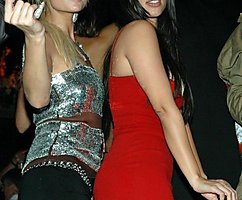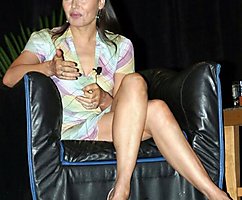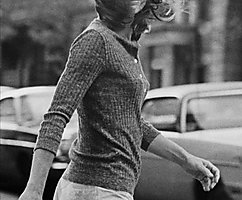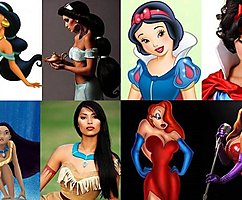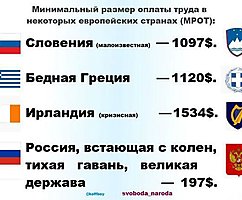Like the Olympics declared a boycott
 Bashny.Net
Bashny.Net
In January 1980, US President Jimmy Carter called to boycott the Olympics in Moscow in response to the Soviet invasion of Afghanistan; his position was supported by 64 countries. And this is not the first time the Olympic Games is a field for the expression of political orientations.
Paris, 1924
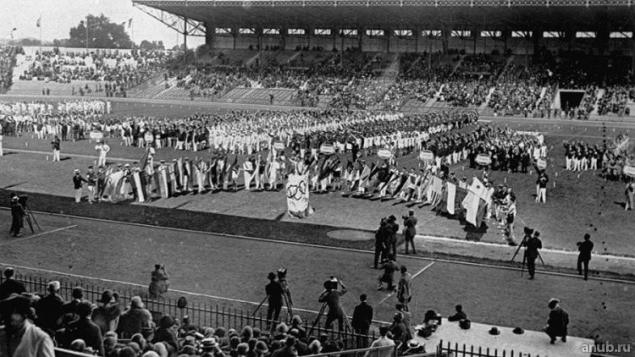
At the 1920 Olympics held in Antwerp, Belgium, were not invited to Germany and its allies in the First World War, including Soviet Russia, which the West has been declared a political boycott.
Four years later, the Soviet Union has refused to go to the Olympics, although the Supreme Council of Physical Education under the CEC of the RSFSR from France received an official invitation. For such a gesture were two reasons. First, the Soviet Union thus supported by Germany, which is still not invited to the Olympics, commemorating the First World War. Secondly, the charter of the Red Sportinterna, which was the Soviet Union, obliged its members to fight against bourgeois sport organizations, and the International Olympic Committee (IOC) was the first in this list. USSR boycotted the Olympic competition, spending instead proletarian Olympics, up until 1952.
Berlin, 1936
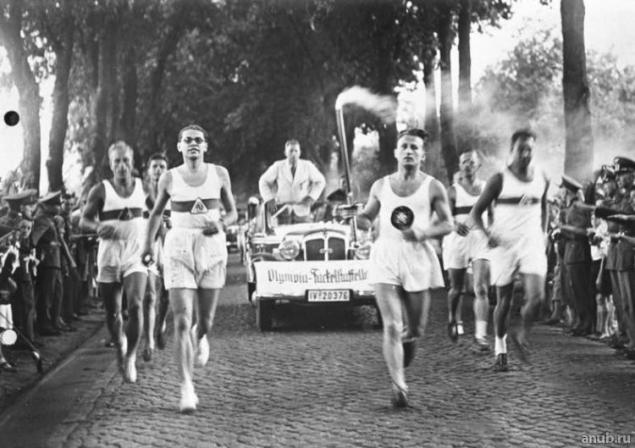
The prospect of the XI Olympic Games in Nazi Germany a little pleased countries who planned to take part in them. At the conference in defense of the Olympic ideas, which took place in Paris in June 1936, all "people of good will and friends Olympic ideas" called for a boycott of the game in the Third Reich. Instead, they were invited to the People's Olympics in Barcelona. To achieve this, the Council had to fight for the transfer of the Olympic Games in Berlin. At the same time, the IOC sent to Berlin experts who have not noticed in the capital of Nazi Germany is nothing contrary to the Olympic principles.
As a result, July 19 Games inaugurates Hitler and undertaken in parallel with the People's Olympics in Barcelona did not work - in the same month, Franco revolted against the Republican government of Spain.
Athletes competed under the flag with the swastika, which was hung with Berlin. Expelled from the membership of the Swiss Paul Martin, who was married to a Jewish woman.
The Nazis carefully studied American and European teams for purity of Aryan blood ahead of time thinking about the generation of the "children of the Olympic Games." Despite this, the triumph of the racist ideology of the games did not work - ten blacks took six gold, three silver and two bronze medals, and the best athlete of the Olympics has been recognized by the black sprinter Jesse Owens.
Only after World War II, the IOC has publicly admitted their wrong decision not to change the venue of the Olympic Games in 1936.
Melbourne, 1956
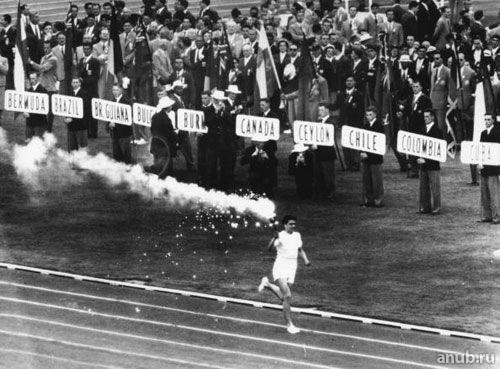
Among the countries that boycotted the Summer Olympics in 1956 (held in November - December), there are three groups. For the first - Egypt, Iraq, Lebanon, and Cambodia - move was a reaction to the Suez crisis and the aggression of France, Britain and Israel towards Egypt.
Second - Spain, Switzerland and the Netherlands - did not go to the Games in protest against the suppression of the uprising by Soviet troops in Hungary last month. Hungarian athletes themselves dissatisfied with the new pro-Soviet government refused to serve under the flag of the Hungarian People's Republic, and appeared at the Olympics under the flag of Hungary 1918 sample. Some of them after the competition has not returned home.
Separate cause for a boycott of the Olympics and was the People's Republic of China, which protested against the invitation team Taiwan as an independent state.
Tokyo, 1964
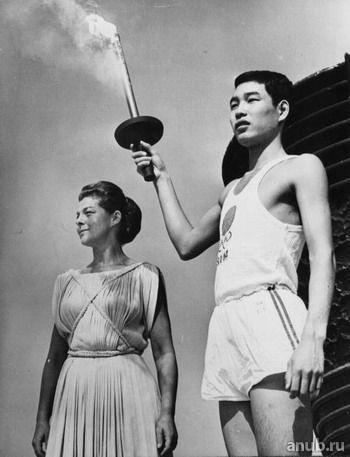
The invitation to the capital of Japan in 1964, South Africa was denied by the government for pursuing the policy of apartheid and a life sentence future first black president Nelson Mandela. In the sporting community of South Africa was able to return only in 1992.
Meanwhile, its drama developed in Asia in 1962 in Jakarta conducted IV Asian Games, which did not allow teams of Israel and Taiwan (they were denied visas). IOC stripped Indonesian Olympic Committee powers in relation to racial discrimination in this country, and that in retaliation announced that it will hold its own games for developing countries (Games for the New Emerging Forces, GANEFO). In 1963, the first competition was attended by 50 countries. Then the IOC banned participants GANEFO speak at the Olympics. Therefore, Indonesia has decided to boycott the Games, and it supported the DPRK.
Montreal, 1976
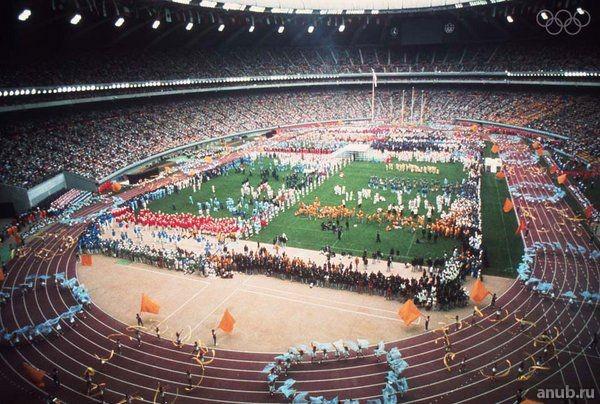
Olympic games in Montreal boycotted the 26 African countries that have failed to achieve a ban on participation in the Games for New Zealand to compete in rugby in South Africa in spite introduced sanctions against the country. IOC justified by the fact that rugby is not included in the Olympic program. The protests of African countries have joined Iraq and Guyana.
Taiwan's team did not go to Montreal because of the fact that Canada did not want to recognize the independence of the island. In 1975, Canada has threatened not to allow Taiwanese athletes to the Olympics, which intended to serve under the flag of partially recognized Republic of China, despite the fact that the IOC has recognized its National Olympic Committee. According to one version, Canada took this decision under pressure from Beijing, as China was the largest trading partner of the country.
IOC threatened to ban the Olympics in Montreal, Canada then invited to Taiwan to use the flag and anthem, but refused to recognize the Republic of China as an independent state, so the Taiwanese delegation in Montreal did not go. China, in turn, did not take part in the Games in protest against the fact that the IOC recognized Taiwan as an independent state.
Moscow, 1980
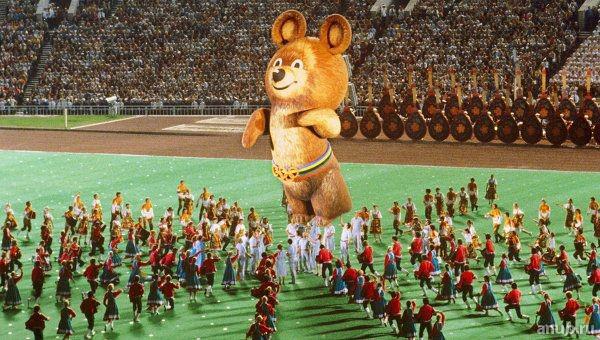
Followed by the United States against the Soviet invasion of Afghanistan were all countries - members of NATO and some allies of the United States and Britain. In addition to the 64 States that have formally declared their intention to boycott the Olympics, another 16 were limited to those that do not encourage their athletes to take part in it.
Prefabricated Australia, Holland, Italy, France, the UK and some other countries were not under the national flag, and the flag of the IOC. In case of victory did not sound national and Olympic anthem.
Los Angeles, 1984
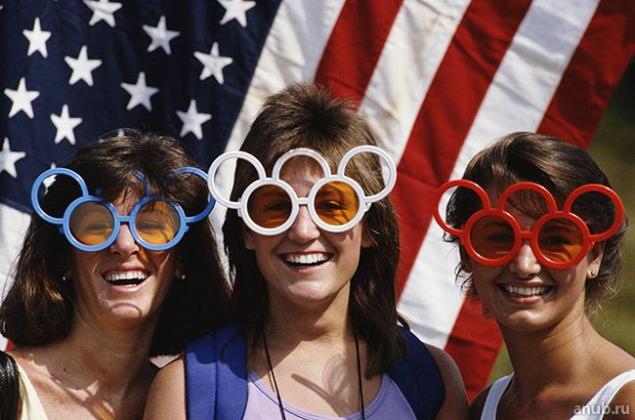
At the next Olympics socialist countries accused the US of "fanning anti-Soviet hysteria" and almost entirely boycotted Los Angeles. Exceptions were only Yugoslavia and China, who first participated in the Olympics. Romanian athletes at the Games were in private.
"With the direct connivance of the American authorities have intensified dramatically different kind of extremist organizations and groups openly aiming at the creation of" intolerable conditions "for the visit of the delegation of the USSR, the Soviet athletes. Preparing hostile Soviet political demonstrations against the NOC of the USSR, Soviet athletes and officials heard overt threats of physical violence. The leaders of the anti-Soviet, anti-socialist organizations are representatives of the US administration, their activities are widely advertised by the media. To justify this campaign by the US authorities and the organizers of the Olympics made constant references to all sorts of legislation ", - reads the statement of the National Olympic Committee of the USSR on May 8, 1984.
In addition to the countries of victorious socialism, boycotted the Games, Libya and Iran, unhappy with the participation of Israel in them.
Seoul, 1988
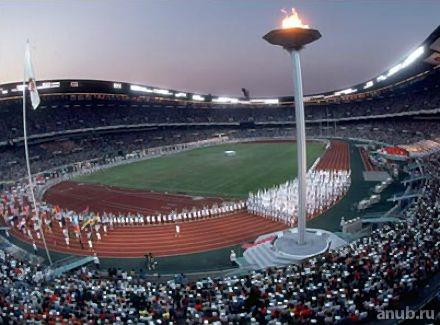
At this time, the initiator of the boycott made North Korea, which wanted to spend part of the competition in its territory, but was not approved by the IOC. Then DPRK absolutely refused to participate in the Games, what it was supported by Cuba, Nicaragua and Ethiopia. In Seoul, the team did not come from Albania, the Seychelles and Madagascar, but the official boycott of these countries have not announced. Socialist states North Korea did not support, as the Soviet Union did not dare to miss two consecutive Olympics.
Sochi 2014
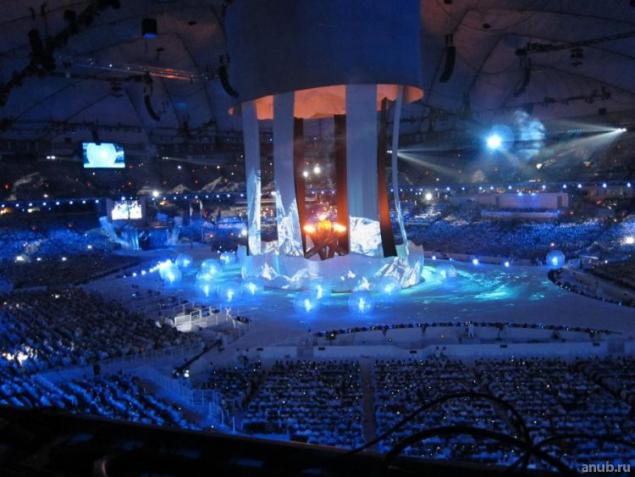
The idea of boycotting the Olympics originated in 2008 during the Russian-Georgian war. This called for the international community, Georgian President Mikheil Saakashvili. At the same time a US-European boycott of the Winter Olympics called for American newspapers.
In the summer of last year, when the conflict 08.08.08 many forgotten, the international community has responded to the painful State Duma adopted the law banning homosexual propaganda. One of the first to boycott the Olympic Games in Sochi called British actor, writer, playwright and openly gay Stephen Fry. "In the general interest of humanity, proclaimed the Olympic Movement, the IOC have to say a firm no barbaric, fascist law passed by the Duma with the filing of Putin" - Fry wrote in his blog. He compared the actions of the Russian authorities against gays discriminatory policies of the Third Reich for the Jews and expressed fears that homosexual athletes may be at risk in Russia. Position Fry shared his compatriot, actor Rupert Everett.
Refusal to visit in Sochi, said Prime Minister David Cameron, US President Barack Obama, German President Joachim Gauck, French President Francois Hollande, President of Lithuania Dalia Grybauskaite and European Commissioner for Justice Viviane Reding. At the same time, not all of them speak directly about the political reasons for its decision.
Paris, 1924

At the 1920 Olympics held in Antwerp, Belgium, were not invited to Germany and its allies in the First World War, including Soviet Russia, which the West has been declared a political boycott.
Four years later, the Soviet Union has refused to go to the Olympics, although the Supreme Council of Physical Education under the CEC of the RSFSR from France received an official invitation. For such a gesture were two reasons. First, the Soviet Union thus supported by Germany, which is still not invited to the Olympics, commemorating the First World War. Secondly, the charter of the Red Sportinterna, which was the Soviet Union, obliged its members to fight against bourgeois sport organizations, and the International Olympic Committee (IOC) was the first in this list. USSR boycotted the Olympic competition, spending instead proletarian Olympics, up until 1952.
Berlin, 1936

The prospect of the XI Olympic Games in Nazi Germany a little pleased countries who planned to take part in them. At the conference in defense of the Olympic ideas, which took place in Paris in June 1936, all "people of good will and friends Olympic ideas" called for a boycott of the game in the Third Reich. Instead, they were invited to the People's Olympics in Barcelona. To achieve this, the Council had to fight for the transfer of the Olympic Games in Berlin. At the same time, the IOC sent to Berlin experts who have not noticed in the capital of Nazi Germany is nothing contrary to the Olympic principles.
As a result, July 19 Games inaugurates Hitler and undertaken in parallel with the People's Olympics in Barcelona did not work - in the same month, Franco revolted against the Republican government of Spain.
Athletes competed under the flag with the swastika, which was hung with Berlin. Expelled from the membership of the Swiss Paul Martin, who was married to a Jewish woman.
The Nazis carefully studied American and European teams for purity of Aryan blood ahead of time thinking about the generation of the "children of the Olympic Games." Despite this, the triumph of the racist ideology of the games did not work - ten blacks took six gold, three silver and two bronze medals, and the best athlete of the Olympics has been recognized by the black sprinter Jesse Owens.
Only after World War II, the IOC has publicly admitted their wrong decision not to change the venue of the Olympic Games in 1936.
Melbourne, 1956

Among the countries that boycotted the Summer Olympics in 1956 (held in November - December), there are three groups. For the first - Egypt, Iraq, Lebanon, and Cambodia - move was a reaction to the Suez crisis and the aggression of France, Britain and Israel towards Egypt.
Second - Spain, Switzerland and the Netherlands - did not go to the Games in protest against the suppression of the uprising by Soviet troops in Hungary last month. Hungarian athletes themselves dissatisfied with the new pro-Soviet government refused to serve under the flag of the Hungarian People's Republic, and appeared at the Olympics under the flag of Hungary 1918 sample. Some of them after the competition has not returned home.
Separate cause for a boycott of the Olympics and was the People's Republic of China, which protested against the invitation team Taiwan as an independent state.
Tokyo, 1964

The invitation to the capital of Japan in 1964, South Africa was denied by the government for pursuing the policy of apartheid and a life sentence future first black president Nelson Mandela. In the sporting community of South Africa was able to return only in 1992.
Meanwhile, its drama developed in Asia in 1962 in Jakarta conducted IV Asian Games, which did not allow teams of Israel and Taiwan (they were denied visas). IOC stripped Indonesian Olympic Committee powers in relation to racial discrimination in this country, and that in retaliation announced that it will hold its own games for developing countries (Games for the New Emerging Forces, GANEFO). In 1963, the first competition was attended by 50 countries. Then the IOC banned participants GANEFO speak at the Olympics. Therefore, Indonesia has decided to boycott the Games, and it supported the DPRK.
Montreal, 1976

Olympic games in Montreal boycotted the 26 African countries that have failed to achieve a ban on participation in the Games for New Zealand to compete in rugby in South Africa in spite introduced sanctions against the country. IOC justified by the fact that rugby is not included in the Olympic program. The protests of African countries have joined Iraq and Guyana.
Taiwan's team did not go to Montreal because of the fact that Canada did not want to recognize the independence of the island. In 1975, Canada has threatened not to allow Taiwanese athletes to the Olympics, which intended to serve under the flag of partially recognized Republic of China, despite the fact that the IOC has recognized its National Olympic Committee. According to one version, Canada took this decision under pressure from Beijing, as China was the largest trading partner of the country.
IOC threatened to ban the Olympics in Montreal, Canada then invited to Taiwan to use the flag and anthem, but refused to recognize the Republic of China as an independent state, so the Taiwanese delegation in Montreal did not go. China, in turn, did not take part in the Games in protest against the fact that the IOC recognized Taiwan as an independent state.
Moscow, 1980

Followed by the United States against the Soviet invasion of Afghanistan were all countries - members of NATO and some allies of the United States and Britain. In addition to the 64 States that have formally declared their intention to boycott the Olympics, another 16 were limited to those that do not encourage their athletes to take part in it.
Prefabricated Australia, Holland, Italy, France, the UK and some other countries were not under the national flag, and the flag of the IOC. In case of victory did not sound national and Olympic anthem.
Los Angeles, 1984

At the next Olympics socialist countries accused the US of "fanning anti-Soviet hysteria" and almost entirely boycotted Los Angeles. Exceptions were only Yugoslavia and China, who first participated in the Olympics. Romanian athletes at the Games were in private.
"With the direct connivance of the American authorities have intensified dramatically different kind of extremist organizations and groups openly aiming at the creation of" intolerable conditions "for the visit of the delegation of the USSR, the Soviet athletes. Preparing hostile Soviet political demonstrations against the NOC of the USSR, Soviet athletes and officials heard overt threats of physical violence. The leaders of the anti-Soviet, anti-socialist organizations are representatives of the US administration, their activities are widely advertised by the media. To justify this campaign by the US authorities and the organizers of the Olympics made constant references to all sorts of legislation ", - reads the statement of the National Olympic Committee of the USSR on May 8, 1984.
In addition to the countries of victorious socialism, boycotted the Games, Libya and Iran, unhappy with the participation of Israel in them.
Seoul, 1988

At this time, the initiator of the boycott made North Korea, which wanted to spend part of the competition in its territory, but was not approved by the IOC. Then DPRK absolutely refused to participate in the Games, what it was supported by Cuba, Nicaragua and Ethiopia. In Seoul, the team did not come from Albania, the Seychelles and Madagascar, but the official boycott of these countries have not announced. Socialist states North Korea did not support, as the Soviet Union did not dare to miss two consecutive Olympics.
Sochi 2014

The idea of boycotting the Olympics originated in 2008 during the Russian-Georgian war. This called for the international community, Georgian President Mikheil Saakashvili. At the same time a US-European boycott of the Winter Olympics called for American newspapers.
In the summer of last year, when the conflict 08.08.08 many forgotten, the international community has responded to the painful State Duma adopted the law banning homosexual propaganda. One of the first to boycott the Olympic Games in Sochi called British actor, writer, playwright and openly gay Stephen Fry. "In the general interest of humanity, proclaimed the Olympic Movement, the IOC have to say a firm no barbaric, fascist law passed by the Duma with the filing of Putin" - Fry wrote in his blog. He compared the actions of the Russian authorities against gays discriminatory policies of the Third Reich for the Jews and expressed fears that homosexual athletes may be at risk in Russia. Position Fry shared his compatriot, actor Rupert Everett.
Refusal to visit in Sochi, said Prime Minister David Cameron, US President Barack Obama, German President Joachim Gauck, French President Francois Hollande, President of Lithuania Dalia Grybauskaite and European Commissioner for Justice Viviane Reding. At the same time, not all of them speak directly about the political reasons for its decision.
Tags
See also
How things work: Work trauma (3 pics + text)
Anomalous zones of Russia
How things work: an Air Traffic Controller
Stalin's bunker in Samara (18 photos)
Fancy cards (40 photos)
How to make Haiti
Photos of North American bees
Dismantled cars
Interesting about the "Miss Universe"
Dangerous animals

